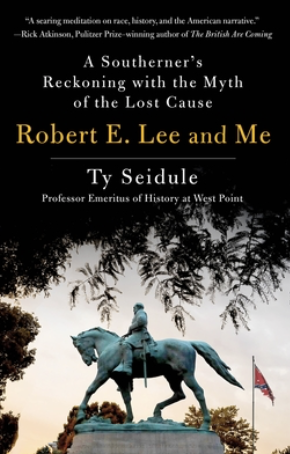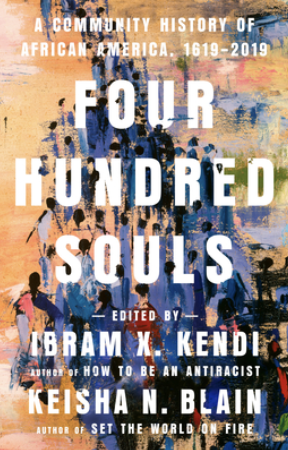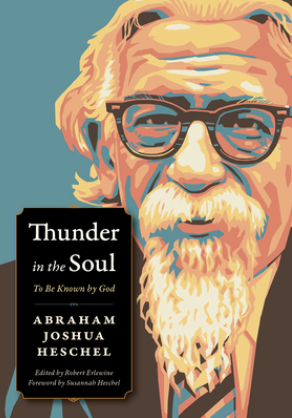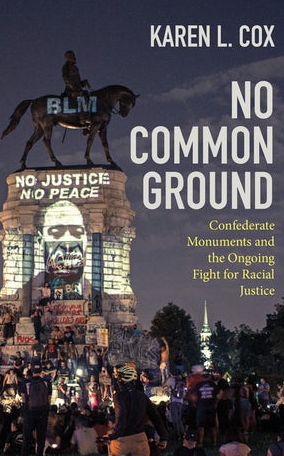Below are some of the USIH-adjacent books that I’m enjoying currently. I planned to curate a list of twelve but didn’t quite finish that, so I’ll post six more next month. How many of these have you read or are you planning to read?
ONE: On Love and Tyranny: The Life and Politics of Hannah Arendt by Ann Heberlein (January 2021)

Written by a scholar of ethics, philosophy, and theology, and translated from Swedish, On Love and Tyranny is one of at least two Hannah Arendt biographies published in 2021. I eagerly await the other one from Samantha Rose Hill forthcoming this spring. Halfway through On Love and Tyranny, I hang on every word. Hannah Arendt was born in 1906, raised in a secular, culturally Jewish home in Germany braving World War I, and then forced into refugee status when Adolph Hitler became chancellor in 1933. I wrote about my personal interest in Arendt for USIH previously. I believe that we cannot have too many biographies of her. As long as a new book on Abraham Lincoln or Winston Churchill appears each year, at least one on Arendt should accompany them.
TWO: Robert E. Lee and Me: A Southerner’s Reckoning with the Myth of the Lost Cause by Ty Seidule (January 2021)

West Point history professor and veteran Ty Seidule tells his own story of unlearning the myths that he previously believed regarding his childhood hero Robert E. Lee. This is everything that I look for in a history book: accessible writing by a trained historian, critical analysis of mythmaking, and a sprinkling of personal anecdotes from an author with an intriguing perspective. True to the spirit of dispelling, the narrative centers Black perspectives instead of Lee himself. I appreciated Seidule’s takedowns of Song of the South and Gone with the Wind, his insistence on saying “United States” instead of “Union” to emphasize the Confederacy’s treason, and ultimately his argument that Robert E. Lee is a historical villain.
THREE: Four Hundred Souls: A Community History of African America, 1619-2019 edited by Keisha N. Blain and Ibram X. Kendi (February 2021)

Edited by two of the most prolific historians today, Four Hundred Souls includes contributions from leading activists and scholars of our time. Each of the eighty contributors covers five years, collectively covering 1619 through the present. Through academic history, journalistic commentary, and poetry, they tell a story of enslavement, racism, resistance, resiliency, and community.
FOUR: Until Justice Be Done: America’s First Civil Rights Movement, From the Revolution to Reconstruction by Kate Masur (March 2021)

Until Justice Be Done extends the chronology of the First Reconstruction backwards in time through the early American republic. Historian Kate Masur takes traditional Reconstruction characteristics such as Black Codes and demonstrates that they began as early as 1803 in “free” states. Her analysis ranges across Ohio, Massachusetts, Illinois, and elsewhere, while at the same time, a biracial movement engaged in grassroots activism to combat enslavement. Until Justice Be Done portrays the Civil War and the Emancipation Proclamation as less of a turning point in African American history because severe injustice and anti-Black racism continued through the entire nineteenth century through today.
FIVE: Thunder in the Soul: To Be Known by God edited by Robert Erlewine re: Abraham Joshua Heschel (March 2021)

In American Jewish history and Jewish studies, Abraham Joshua Heschel embodied a distinctive combination of commitment to Jewish laws and rituals and an openness to change. He was an approachable figure who criticized the “status quo” and guided American Judaism into the “public sphere” through accessible, often beautiful writing. His daughter Susannah, who penned a forward to this collection, remains a reliable presence at American Jewish studies conferences.
SIX: No Common Ground: Confederate Monuments and the Ongoing Fight for Racial Justice by Karen L. Cox (March 2021)

No Common Ground by Karen L. Cox is the definitive history of Confederate monuments and their surrounding controversies. Cox traces the origins of these monuments, which aim to preserve Confederate power, white supremacy, and the “lost cause” narrative. She builds from their origins through the present, as diverse activists mobilize to resist the “lost cause” myth and its monuments. No Common Ground offers a masterful public-history analysis. Cox unpacks the motives and stories behind these public displays of a violent historical narrative with a focus on its intended audiences. Confederate monuments idolize a fictitious antebellum utopia and inflict white supremacist terror. Cox adds that related studies in other disciplines such as sociology, as well as microhistories of individual monuments, ought to build on her scholarship.

0